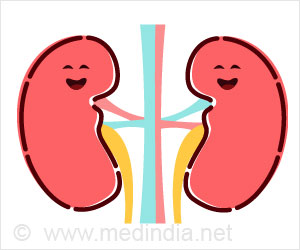Marital relationship quality may have an impact on cardiovascular health, finds a new study published in Epidemiology & Community Health journal.
Highlights
- Marital relationship quality may have an impact on cardiovascular health
- Little or no significant cardiovascular health risks were observed with spouses in consistently good and bad relationship quality
- Lower levels of low-density lipoprotein (bad cholesterol) and weight were observed with improving relationships when compared to the consistently good relationship
- Diastolic blood pressure was associated with 2.74 mm Hg rise in deteriorating relationship
In a bid to rectify this, the researchers tracked changes in cardiovascular risk factors for 620 married fathers taking part in the Avon Longitudinal Study of Parents and Children (ALSPAC), which began in 1991.
The dads completed a 12-item validated questionnaire ( a measure of intimate bonds scale) to assess the quality of their marital relationship when their child was nearly 3 and again when their child was 9.
Relationship quality was defined as consistently good; consistently bad; improving, or deteriorating.
The researchers assessed the dads’ blood pressure, resting heart rate, weight (BMI), blood fat profile, and fasting glucose levels between 2011 and 2013 when their child was nearly 19, on the basis that it would take some time for changes in cardiovascular risk factors to occur after any corresponding changes in relationship quality.
But a more distinct pattern emerged for those whose relationships had either improved or deteriorated during the study period, although the effects in absolute terms were small.
And they were more weakly associated with improved total cholesterol (0.24 mmol/l lower) and improved diastolic blood pressure (2.24 mm Hg lower).
Deteriorating relationships, on the other hand, were associated with worsening diastolic blood pressure (2.74 mm Hg higher).
"Traditionally, beneficial effects of marital status were thought to be mediated by either health selection, confounding by socioeconomic status, or psychosocial mechanisms," write the researchers.
"The latter argument has been used to support the observation that men appear to gain more benefit than women, as women have larger social networks and are less dependent on their partner than men," they add.
By way of an explanation for the lack of change in risk factors among men whose relationships were consistently good or bad, the researchers suggest that this could be down to some degree of ’habituation’ over time or differences in individual perception of relationship quality.
This is an observational study, so no firm conclusions can be drawn about cause and effect, added to which a large number of participants dropped out of the study and the findings only applied to men, caution the researchers.
Because the study participants are still relatively young, it isn’t clear whether the patterns they found will be reflected in actual rates of disease in future, they say. Further monitoring of the participants would be required.
They conclude: "Assuming a causal association, then marriage counseling for couples with deteriorating relationships may have added benefits in terms of physical health over and above psychological well-being, though in some cases ending the relationship may be the best outcome."
Source-Eurekalert















